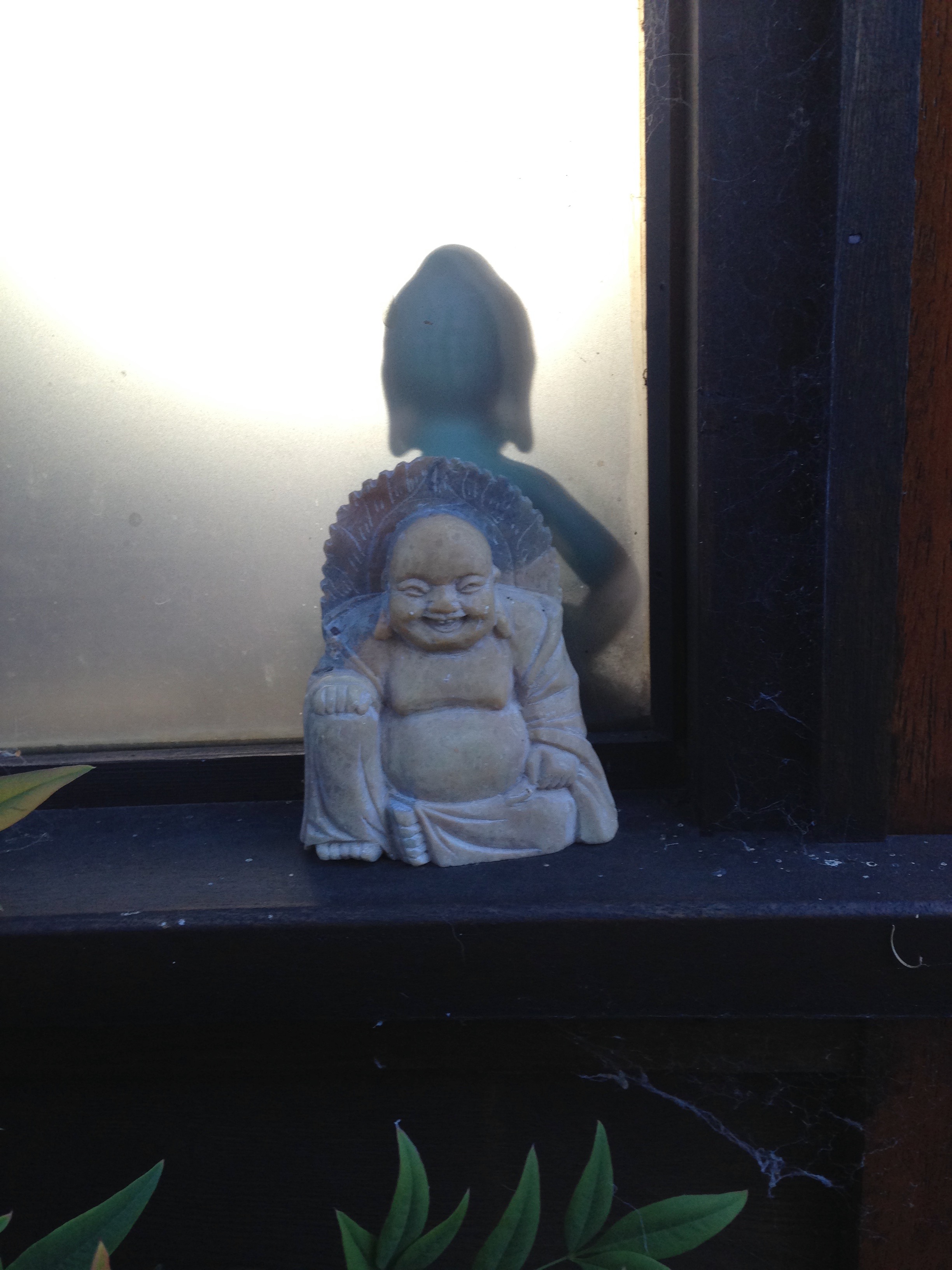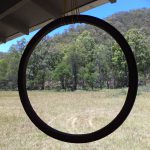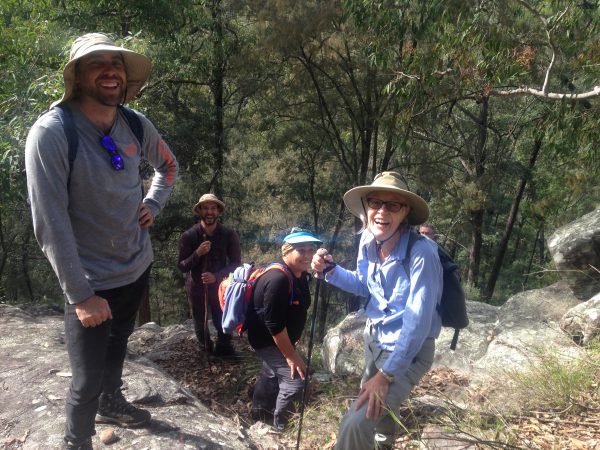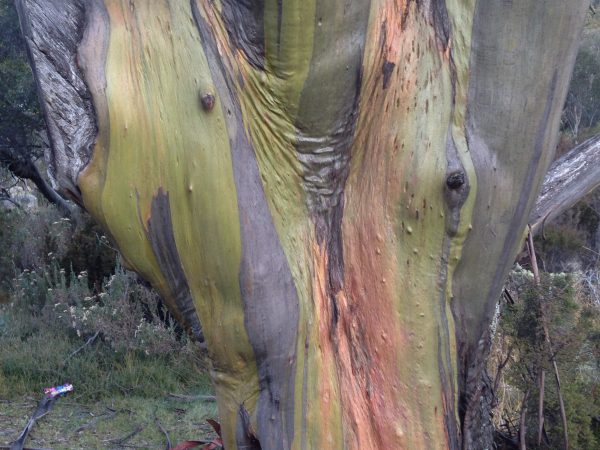Immanence

Paul Maloney, roshi, explores what is meant by Buddha Nature.
The Zen Buddhist view on the human condition can be summarised by the following proposition of Hakuin Zenji, in the conclusion of his Song of Zazen.
“This very place is the Lotus Land, this very body the Buddha.”
If this can be believed, then I think it follows that there is no need for any form of substantial transcendence of the world.
On first sight this proposition seems to be contrary to common sense. Buddhism takes as axiomatic that the human condition, in samsara, is characterised by dukkha (unsatisfactoriness). There is, of course, the promise of an end to dukkha, by following the eightfold path, with the subsequent hope of attainment of nirvana. So how can Zen claim that this place is the Lotus Land, that in fact samsara is nirvana? This in turn depends on how we view the nature of human being itself.
The historical Buddha, Shakyamuni, is said to have declared as a result of his great Awakening experience under the Bodhi tree,
“Wonderful, wonderful, now I realise that all beings are by nature Buddha,
Only their ignorance and delusions prevent them from realising this fact.”
Note that: “All beings by nature are Buddha.” They are not by nature sinful. They are not by nature flawed. They are not by nature in need of salvation. They are not by nature alienated from God, or whatever. They are by nature Buddha. Buddha nature is immanent, not transcendental.
Yet, despite the fact that all beings by nature are Buddha, there is dukkha. How should we understand the nature of the dukkha that is the human condition, and what is meant by the terms “nirvana,” and “samsara?” We do not suffer because we are sinful, but because we are deluded, ignorant of our essential nature. The fundamental delusion, according to Yasutani Roshi, is to believe that I am here, and you are there. That is to say, to believe that the world of samsara is made up of a collection of independent, self-existent things. Believing we are isolated “selves”, alone in a contingent and indifferent universe, we grasp at that which is pleasurable and seemingly permanent, and we reject the painful and impermanent. As a consequence, our lives are driven by desire and aversion, both of which are the consequences of ignorance. These three poisons, greed, hatred and ignorance are the source of suffering.
Because there is suffering there is a need of salvation. What is the nature of Buddhist salvation? For the Zen Buddhist salvation is not by faith or by grace. Nor does it come by good works, for there is no merit to be achieved or accumulated. Salvation is not to be found in any nirvana that is conceived of as a transcendental realm beyond change. It is because of ignorance that people seek a false refuge in Being, and the hope of permanence. In particular that there is life after death.
Salvation in Buddhism is by one thing alone: Awakening. Hakuin tells us that the most efficient path to Awakening is zazen. Because the fall is the result of ignorance, so suffering is overcome through understanding, through waking up, by becoming a Buddha, an awakened one. Salvation comes through the seeing of self-nature, and the understanding that this nature is no-nature. The understanding that brings salvation is the self-conscious awareness of change and impermanence as the only reality. It is the realisation that in the world of experience all is momentary, all is empty, and all is without self. Enlightenment can be considered as the result of the complete annihilation of the deep rooted, innate clinging to the notion of being, or anything whatsoever that is permanent. In the words of the Buddha,
When you develop the perception of impermanence, then the conceit of ‘I AM’ will be abandoned.
When we understand that our true nature is empty and impermanent, we are enlightened, we are saved. Not only are we saved, we realise that we always have been. It is like waking from a bad dream to find oneself at home in the comfort of one’s own bed.
Three Views of the Human Condition
A way to understand the Buddhist position is to contrast it with two common world views that can be identified as most natural to the human mind. Consider three things in the ocean; a log of wood, a fish, and a wave. Each can be said to exist and to have certain distinguishing characteristics. But the relationship of each to the ocean is quite different to that of the other two.
The log is quite other than the ocean, they are two different substances. The ocean could dry up, or the log could be removed from it and placed somewhere else, without either being substantially affected. By analogy, this view presents the human condition as one of looking at things from the ‘outside’, as it were. The individual person is detached from the world, in it, but not of it. As such the person is relatively indifferent to the fate of the world and assumes no responsibility for its integrity. But, just as the log is tossed on the surface of the ocean so, the individual may see him or herself as suffering, the victim of the world’s contingency. Salvation for such a person can be conceived of as the gaining control over the world, making it submit to his power, or, alternatively, the attainment of an ontological transcendence, refuge in some more pleasurable world where the “self” can exist permanently.
The relationship of the fish to the ocean is more intimate, and also more dependent, than that of the log. Changes in the ocean’s condition will affect the fish. Should the ocean get hot, cold or even dry up then the condition of the fish will be substantially affected, its very existence threatened. However, the fish is sufficiently other than, and therefore independent of, the ocean that it could be removed from the ocean and placed in another body of water, without being substantially affected. Again, by analogy, this view presents the human condition as far from that of a detached observer. The human person finds him or herself in the very midst of the world, directly affecting and being affected by the things that he or she encounters. If the world is threatened so is the self. But for all its intimacy the relationship of the self to the world is that of subject to object. The self faces the world as something other, albeit, an “other” that requires a commitment on the part of the self to maintain and nurture it. This is the world of “shallow” ecology that views the world as standing available to the self for its own satisfaction. The person exists in the world and experiences the existential anxiety that is the natural outcome of such a position, should control be lost.
While the second view is closer to that of Zen than is the first view, in its structure it is basically different. The wave, on the other hand, does not have the independence of the log or the fish. For while it can be distinguished and said to exist in the ocean, it cannot be separated from its environment. And while it may be said to have colour, form etc. it has no core centre, no “self”, that remains apart and unchanging. The wave’s existence is not so much dependent on the ocean, but a condition of the ocean, one of the ocean’s passing features. Because the ocean is constantly changing so is the wave; it arises, abides and passes away as a result of causes and conditions, leaving nothing behind.
The Buddhist view is that the existence of all beings, not only humans, vis-a-vis Buddha Nature is analogous to that of the wave to the ocean. Which is to say, just as the wave is a condition, or feature of the ocean, so is each individual thing (be it a human being, a worm, a leaf, or an atom) a feature of the one reality that is Buddha Nature. So, I can say the wind, the trees, and the mountains, and I too, are interrelated in a cosmic web of interdependence. In my ignorance I fail to realise this fact. Thus, I believe myself to be like the log or the fish that is sometimes buffeted by the storms, sometimes finding peace at the bottom of a deep pool, depending upon where the currents take me. Thus, I suffer. I see myself as a “victim of fate” or suffering from “karma”. But this is a delusion. I am not the “victim” of my circumstances for I am not other than my circumstances. I am an integral element in the nexus of events that constitute the one reality that is “me/circumstances”. Having no self-being, not being other than my circumstances, means that my fundamental nature is characterised not by being and permanence, but emptiness and impermanence.
So, we must be clear that with salvation the self does not attain union with Buddha Nature, for Buddha Nature is not another with which it could be united. Salvation is a matter of realising our original nature, and it is also a realisation that this nature had never been lost. Buddha Nature is not something to be attained in the future, following a period of sustained practice, but to be found right here.
He walked the blade of a sword;
He stepped on the ice of a frozen river;
He entered a vacant house;
His desire to steal ceased forever.
He returned to his own home,
Saw the beautiful rays of the morning sun,
And watched the moon and stars intimately.
He walked the streets with ease,
Enjoying the gentle breeze.
At last he opened his treasure house.
Until that moment he never dreamed
He had owned those treasures from the very beginning.
Genro’s Poem in The Iron Flute, Case 28. Lung-yu’s Ultimate Stage
This article, written by Paul Maloney, roshi, appeared in the June/July 2019 Newsletter






